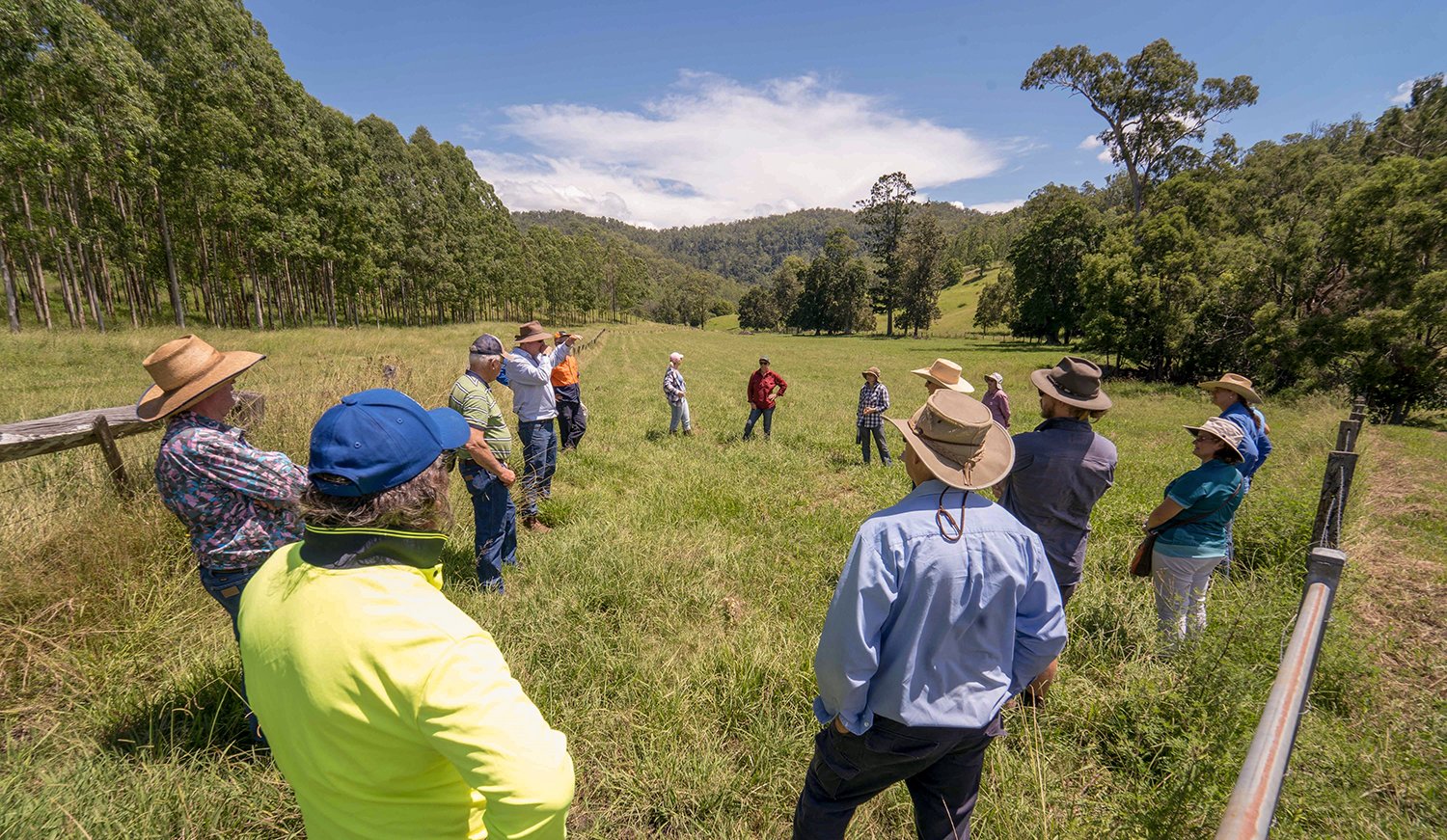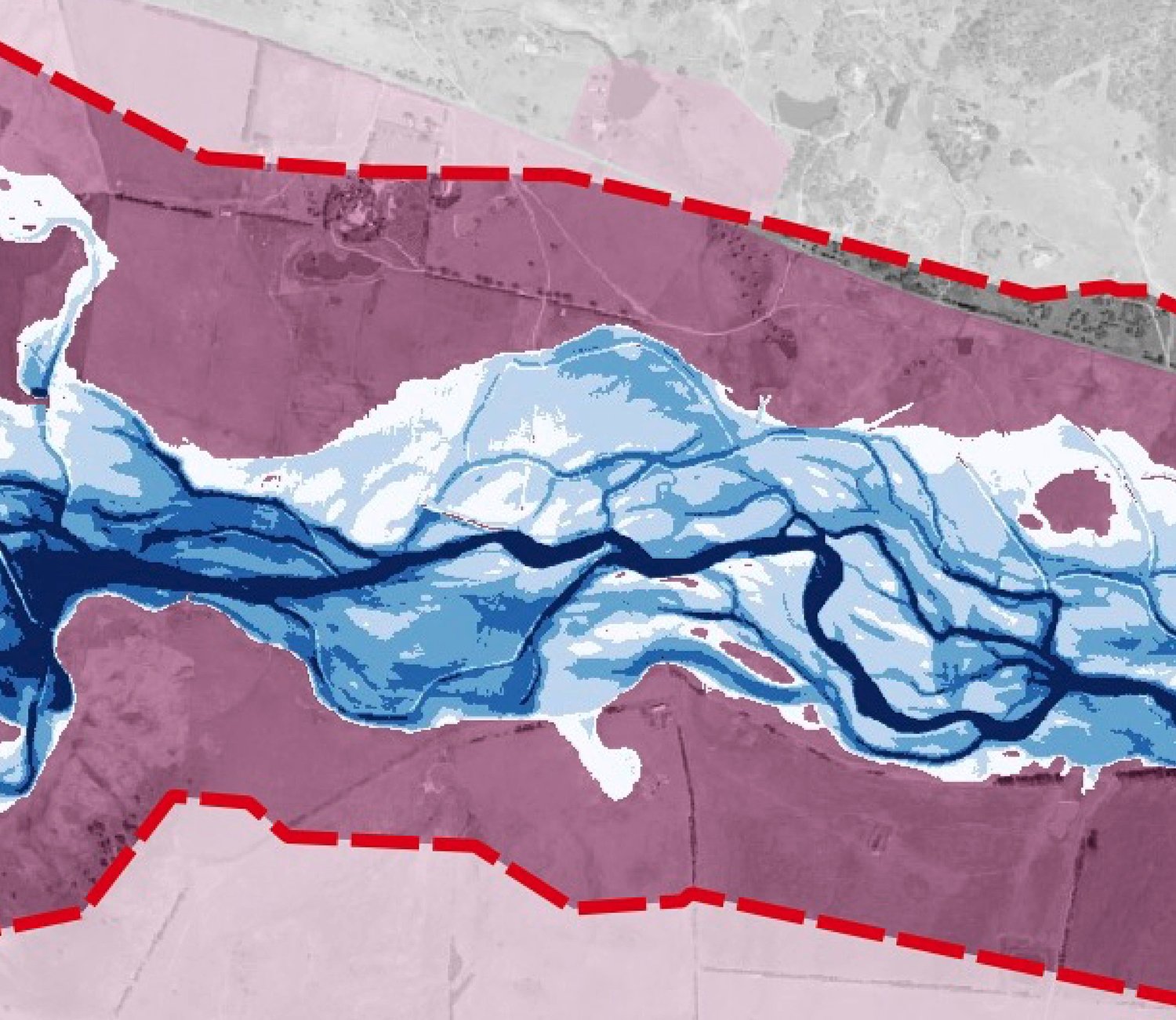The team has been super busy over the summer with several scoping reports for catchment scale projects, initial site inspections for properties and a farm plan for a client near Mittagong NSW.
Swan Brook Catchment Project, Invervell NSW
A scoping report has been completed for Gwymac Inc. Landcare for the Swan Brook Catchment project near Inverell, NSW.
The scoping study aims to identify a site-appropriate approach to achieving landscape-scale rehydration in the Swan Brook catchment. This was done by listening Swan Brook catchment landholders and other stakeholders about their views on the catchment’s current health and what they think could be done to improve it. We also identified existing functional strengths and limitations of the Swan Brook catchment, and then identified and presented a range of possible interventions to achieve landscape rehydration via future landscape rehydration works.
Funding for this work was obtained by the Mulloon Institute via the Levins Family Foundation and matched by Northern Tablelands Local Land Services. Project partners include members of the Swan Vale Landcare Group and landholders in the Swan Brook catchment, GWYMAC Inc and Northern Tablelands LLS.
Peter Hazell and Sam Skeat explaining landscape patterns in a landholder workshop in 2021.
Roseberry Creek Catchment Project, Kyogle NSW
Our thoughts are with everyone in the Northern Rivers region impacted by the recent major flood event.
Roseberry Creek Landcare and Border Ranges Richmond Valley Landcare Network have been working towards a better understanding of their local landscape, landscape rehydration opportunities and erosion control within the local catchment. Observations by local primary producers of the impacts of more frequent intense rain events and an extended drought that led to the Richmond River ceasing to flow, prompted this investigation.
As part of this process of improving their understanding, Mulloon Consulting have delivered a landholder workshop and a scoping report of landscape rehydration opportunities in the catchment.
These are steps towards a better understanding of this catchment, identifying and delivering works as examples of what can be achieved and educating landholders on the types of interventions and management that they can undertake to improve landscape condition. This is also relevant to the many creeks that feed the Richmond River in the northern rivers of NSW, rated D minus in a 2014 EcoHealth report.
The creek is what connects residents, whether it be swimming holes, habitat values, stock and domestic water supply or irrigation for primary producers.
Improved management of the whole catchment will contribute to a more resilient creek, landscape and community.
This project has received funding from the Australian Government’s Future Drought Fund.
Hydrological modelling from a section of the Molonglo River Floodplain used to inform the rehabilitation design process.
Molonglo Catchment Rehydration Initiative, Captains Flat NSW
Work continues on the Molonglo Catchment Rehydration Initiative near Captains Flat with the design for Carwoola finalised and the regulatory process underway, and with construction hoping to start in winter, weather depending. Ultimately, this project will include the installation of leaky weirs and other works across two properties at Captain’s Flat, NSW to improve habitat for the endangered Green and Golden Bell Frog and to improve floodplain hydration and pasture growth.
This project is supported by the NSW Department of Planning, Industry and Environment’s Save Our Species program and with funding from the NSW Government through its Environmental Trust.
Lismore City Council, NSW
TMI have also been busy working in a consortium with Australian Holistic Management Co-operative on development of a landscape hydration index project for the Lismore City Council which has the potential to inform on-ground management decisions and wider scale catchment approaches. TMI has been contributing specialist expertise on supporting hydrology and landscape hydration.
This project is being delivered by a consortium led by the Australian Holistic Management Co-operative with funding from the Lismore City Council.
Initial site inspections
The Mulloon Consulting team have also prepared various initial site inspections, including:
Braidwood, NSW
The owners are keen to use landscape rehydration techniques to improve the movement of water down Brushy Hill Creek, improve water for stock and are building towards the property being self-supporting. They have a very beautiful old house garden which includes peacocks.
Oallen, NSW
This property was impacted by the 2019–20 bush fires. The owners are aiming to set up the property using permaculture and regenerative agriculture principles to produce food for the family and sell surplus products at local markets. They hope to run ducks, geese, chickens, sheep, cows and pigs for maximum diversity and to improve soil and ecological health. We are assisting them with water management across the property including installing a series of leaky weirs, dam expansion and contours.
Two large sheep and cropping properties were visited near Wellington.
Both these landholders are experienced regenerative farmers. We are honoured to have been asked to assist them with advice on landscape rehydration to improve water retention, manage water that is causing erosion and landscape issues.
If you would like Mulloon Consulting to your property, please get in touch. Prior to the visit we collect information on the property through digital layers to understand the stream order, digital elevations, soils, geology and vegetation. Following the visit to the property, we prepare a report describing the on-ground conditions and potential suitability for landscape rehydration. Following this stage, a more detailed design can be completed for rehydration, or this can be included in a landscape rehydration farm planning process.
If this sounds like something that you would like to invest in, please contact Nolani McColl on nolani@themullooninstitute.org





